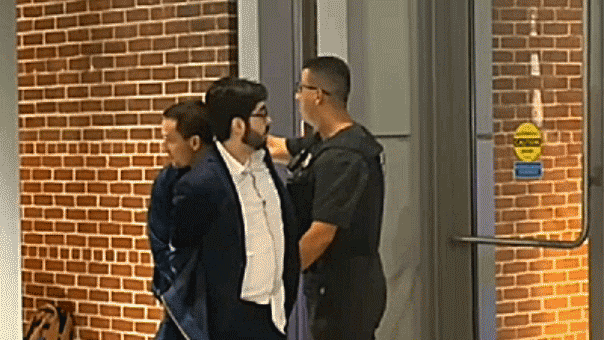SAN FRANCISCO – A one-time gang tough nicknamed "Shrimp Boy" who insisted he had changed his ways through meditation and become a role model for wayward youth has been convicted of racketeering, murder and scores of other crimes in a major organized crime investigation in San Francisco's Chinatown that also brought down a state senator.
The conviction on Friday of Raymond "Shrimp Boy" Chow was largely the work of an undercover FBI agent who posed for years as a foul-mouthed East Coast businessman with mafia ties, as he infiltrated the fraternal group that Chow led. The group was among dozens of active tongs, or family associations, in Chinatown, one of the most popular and visible tourist attractions in the city.
Authorities said Chow and some other members of the group engaged in drug trafficking, money laundering and the sale of stolen cigarettes and top-shelf liquors Johnny Walker Blue Label and Hennessey XO.
Jurors convicted the 56-year-old Chow of all 162 charges against him, including racketeering, murder and conspiracy to commit murder. One of the victims was Allen Leung, the former leader of the fraternal group, who was shot and killed at his business in 2006 as his wife looked on.
Chow, sporting dapper suits and a beaming smile, told jurors at his trial he renounced his drug-dealing and gangster ways after leaving prison in 2003 and turning to meditation. He also was working on a biography, he said.
The smile disappeared Friday, when he stared straight ahead and showed little reaction to the guilty verdicts that could bring life in prison when he is sentenced on March 23.
"It's clear the jury didn't believe a thing about what Chow's defense said," said Rory Little, a law professor at the University of California, Hastings and a former federal prosecutor.
The verdicts marked a big victory for prosecutors, who have now secured convictions against two of the most prominent defendants among the more than two dozen people indicted in the case.
California state Sen. Leland Yee was suspended before pleading guilty in July to a racketeering count involving bribes. He is scheduled to be sentenced Feb. 10.
"This conviction represents a just and final end to Mr. Chow's long running and deadly criminal career," San Francisco FBI Special Agent in Charge David Johnson said in a statement.
Chow's defense attorneys said they plan an appeal. One of the attorneys, Curtis Briggs, said Senior District Judge Charles Breyer unfairly limited the defense case by refusing to let a number of witnesses testify. He also said Breyer appeared not to be paying attention during the trial. Breyer did not immediately return a call seeking comment.
Defense attorney J. Tony Serra said Chow was "noble in his acceptance of defeat" and told his attorneys they would prevail in the next round.
One of the prosecution's main witnesses against Chow was the undercover FBI agent, who testified under a false name that he wined and dined Chow and his associates for years. Chow willingly accepted envelopes stuffed with thousands of dollars in cash for setting up various crimes, the agent said.
Serra argued that the government had set up his client by foisting the envelopes on him and courting him with expensive dinners and liquor purchased with public money.
Chow denied involvement in the slayings and other crimes and said he was given the money because the agent was showing his respect, not in exchange for criminal activity.
During her closing argument, federal prosecutor Susan Badger urged jurors to disregard claims that Chow was a changed man, saying deception was part of his nature.
"He is not the victim here," Badger said during her nearly four-hour presentation. "He is not the world's most misunderstood criminal."
___
Associated Press writer Kristin Bender contributed to this report.








































